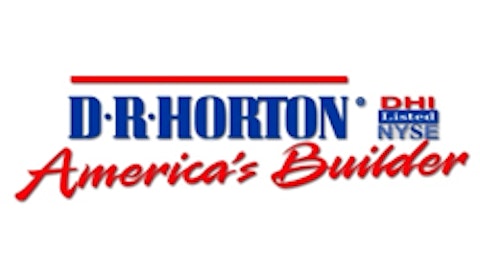It’s great to be in the homebuilding business right now, but you should not buy these stocks since homebuilder share prices anticipate great growth.
The Macro Picture
Yes, there is cheap funding for new home buyers and for companies willing to sell shares at rich valuations to optimistic buyers or borrow money at low interest rates. This is good news for companies, but not good news for investors (the people buying shares at high prices).

Tri Pointe Homes Inc (NYSE: TPH), a company financed by Barry Sternlicht, increased by 12% after raising $233 million through an IPO. The company’s shareholders sold 13.7 million shares for $17 each, above the range of $14 to $16. The company will use the proceeds raised from the IPO to acquire land. Since 2010, Sternlicht’s Starwood Capital Group has invested $150 million in the company, holding approximately 84% in the company pre-IPO. He sold his 3.7 million shares in the company for $62.7 million during the IPO and retained 14.3 million shares.
According to the Richard Dugas, Chairman and CEO of the company, “We have every reason to expect that housing has indeed turned the corner and that industry sales in 2013 can continue to move higher as pent-up demand is released.”
The demand for new houses has increased due to tightening of existing properties inventories and mortgage rates float to record lows. New home sales in the U.S. increased by 20% during 2012 to its highest level since 2009. So, as was the case with on the corporate level, consumers are taking advantage of cheap financing.
However, there is more to investing than cheap financing. Even with cheap financing, if you pay too much you are setting yourself up for disappointment and possibly loss. Some of the expectations in the market are just too high.
Consider residential REITs. The share price of AvalonBay Communities, Inc. (NYSE:AVB) , the second-largest publicly listed apartment owner in the U.S., plunged after forecasting its earnings below the analyst’s expectations during the year.
During 2013, the funds from operations are expected to be $4.17 to $4.47 per share, representing a decline of 19% as compared to the previous year depending on the midpoint of the range. According to a Bloomberg survey, the average estimate of 18 analysts for FFO is $6.20 per share, this a cash-flow measure used by REITs.
According to Timothy Naughton, the Chief Executive Officer of AvalonBay, “Rental housing has benefited from a unique combination of historically low supply, modest job and economic growth, a sluggish for-sale market and fragile consumer confidence.” If these conditions do not persist, then there would be a negative impact on the long-term outlook of the business.
Prices that Assume Growth
PulteGroup, Inc. (NYSE:PHM), the largest homebuilder by market value in the United States disappointed analysts when it reported a slowing home-order growth. According to the Bloomfield Hills, the home orders raised by 27% during the fourth quarter. Lennar, the second-largest builder by market value, said that it reported a 32% increase in the home orders during the last quarter, where D.R. Horton, the third-largest builder, reported a 39% increase.
According to Joel Locker, an analyst with FBN Securities, investors were dissatisfied with order growth as it trailed other builders. Until this news surfaced, PulteGroup was the best performer among these companies. Mr. Locker also said , “Pulte couldn’t meet lofty expectations. I don’t think sentiment could be higher in homebuilders. Investors expect significant earnings growth in the next few years to justify these stock prices.”
The stock price for PulteGroup was punished even though it beat analyst estimates and last year’s numbers during the fourth quarter, PulteGroup reported a net income of $58.7 million or 15 cents per share as compared to $13.8 million or 4 cents per share during the previous year. It comprises of certain costs such as future loan-repurchase obligations of $49 million or 13 cents per share and repurchase of senior notes of $32 million or 8 cents per share. This was offset by an income tax benefit of $8 million or 2 cents per share.
According to a Bloomberg survey of 19 analysts, the average estimate of net income of 31 cents per share. According to Stephen East, an analyst at International Strategy & Investment Group, the earnings per share was 34 cents per share excluding one-time expenses. The revenues increased from $1.26 billion to $1.57 billion. Apparently the homebuilders have to do more than just post high earnings to keep share prices up.
Conclusion
The expectations for homebuilders are just too high for investors to jump in at today’s prices.
The article High Growth Expectations Lead to Overpriced Homebuilding Stocks originally appeared on Fool.com and is written by Bill Edson.
Copyright © 1995 – 2013 The Motley Fool, LLC. All rights reserved. The Motley Fool has a disclosure policy.



